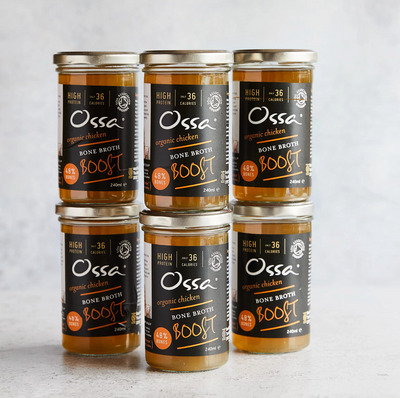Surviving Festival Season: Understanding and Managing 'Festival Flu'
Surviving Festival Season: Understanding and Managing 'Festival Flu'
Surviving Festival Season: Understanding and Managing 'Festival Flu'
As the sun begins to shine brighter and days grow longer, we find ourselves at the doorstep of the vibrant festival season. From music to arts, these exhilarating events promise a joyful escape from the mundane. Yet, amid the laughter, dancing, and new memories, there's an unwelcome guest that often overstays its welcome – the infamous 'Festival Flu'.
Festival Flu, akin to the much-discussed 'Keto Flu', isn't a medically recognised condition. It's a colloquial term for a collection of symptoms typically experienced post-festival. The exhilaration and euphoria of festivals often pave the way for exhaustion, dehydration, and a weakened immune system - leaving festival-goers feeling under the weather once the music stops and reality sets in.
As the festival season approaches, it's essential to be prepared. With careful planning, wise food choices, and adequate hydration, you can enjoy your festival experience and minimise the risk of the dreaded Festival Flu. This guide will delve into understanding the Festival Flu, its symptoms, and practical ways to prevent and manage it, ensuring your festival season is filled with only the best memories.
Can Eating Well Combat Festival Flu and Make You Energised?
It's a resounding yes! Eating well and staying hydrated are paramount when it comes to feeling energised and protecting your immunity, especially at a festival.
Importance of Nutrition and Hydration at a Festival
- Energy: Festivals often involve a lot of physical activities, such as dancing, walking, and standing for long hours. Good nutrition provides the fuel your body needs to keep up with these energy demands. Complex carbohydrates, lean proteins, and healthy fats are all crucial for sustained energy.
- Immune Support: A well-balanced diet rich in fruits, vegetables, lean proteins, and whole grains provides essential vitamins, minerals, and antioxidants that support your immune system, potentially helping you resist the germs that may lead to 'festival flu'.
- Hydration: Staying hydrated is critical for various bodily functions, including maintaining your body's temperature, removing waste, and lubricating your joints. Dehydration can cause fatigue, headaches, and severe health problems. Festivals often involve being outdoors in the heat, potential alcohol consumption, and being active, all of which can dehydrate you.
Festival Diet: What Foods are Important to Include?
At a festival, the key to feeling energised and maintaining health is to consume a balanced diet filled with macronutrients.
- Carbohydrates: Choose complex carbohydrates packed with fibre for sustained energy release. These include beans, whole grains, vegetables, and fruits, which provide long-lasting energy with no crash, unlike simple carbohydrates like cakes, soft drinks, and sweets.
- Protein: Protein, when paired with complex carbohydrates, will keep you feeling full and satisfied. It is also essential for muscle and cell repair after physical activity, meaning it's crucial for recovery and energy during a festival.
- Fats: Healthy fats like those found in nuts, seeds, oily fish, olive oil, and avocado take the longest to digest, ensuring you feel full and have long-lasting energy, especially when combined with protein and complex carbohydrates.
- Fibre: Don't skimp out on fibre while at a festival! Fibre helps you feel full between meals and prevents any drastic blood sugar spikes, which are inevitably followed by a crash, leaving you feeling exhausted. Plus, it’s essential for your digestion.
Hydrate at Festivals: The Importance of Water and Other Drinks
Staying hydrated at a festival should be your main priority. Dehydration can lead to fatigue, dizziness, confusion, and severe cases, even heat stroke. Water is the best option for staying hydrated, so bring a reusable water bottle you can refill throughout the day. Electrolyte sachets or tablets and coconut water are also excellent options for replenishing lost electrolytes and ensuring adequate hydration levels.
Festival-Proof Foods: Best Foods to Bring to a Festival
Wondering what you should pack for the festival? We asked our in-house Registered Dietitian and here are some options:
- Fresh fruit, like apples & bananas or some dried fruit bars.
- Nuts and seeds for healthy fats and protein. Bringing some individual bags of Almonds or macadamia nuts or a bag of mixed nuts can be a great idea.
- Whole grain crackers are also a great idea for some added carbohydrates. Crackers that also have nuts, seeds, or legumes for added protein, like these chickpea triangles from Rude Health or Amisa Veggie Crispbreads are also higher in fibre.
- Nut butter (like almond butter or peanut butter) which provides healthy fats and protein.
- Beef bars or jerky, if you eat meat. These are packed with protein and a great snack for on-the-go.
- Tinned fish, if you’re looking for a high protein pairement for your crackers.
- Raw veggies (like baby carrots or cherry tomatoes) are hydrating and nutrient-dense, if you’re able to bring them. If you can bring a cooler, that’s great.
- Energy bars that are low in sugar but high in fibre, protein, and healthy fats. Misfits are a great option for anyone following a plant based diet.
Festival Flu: What Foods To Avoid
While festivals are a time for enjoyment and indulgence, certain food choices can lead to dips in energy and generally make you feel unwell. Here are a few types of foods that may be best to avoid or at least limit during a festival:
- High-Sugar Foods: Foods high in sugar, such as sweets, sodas, and pastries, can cause a quick energy spike followed by a "sugar crash". This rapid fluctuation in blood sugar can lead to feelings of fatigue, mood swings, and further food cravings.
- Highly Processed Foods: These include chips, fast food, and other junk food. They can be high in unhealthy fats, sugar, and sodium, but low in essential nutrients. Overconsumption can lead to bloating, discomfort, and low energy.
- Alcohol: While it might be part of the festival experience for many people, alcohol is dehydrating and can cause fatigue. It can also disrupt sleep patterns, which might impact your energy levels the next day. If you do drink, remember to do so responsibly and balance alcohol with plenty of water and food.
- Caffeinated Drinks: Energy drinks, cola, or too much coffee can lead to dehydration. They might provide a short-term energy boost, but could lead to an energy crash. Remember to consume mindfully.
Conclusion: Say Goodbye to Festival Flu
In essence, the key to avoiding the dreaded 'festival flu' is preparation and self-care. Ensuring you consume a balanced diet rich in complex carbohydrates, proteins, healthy fats, and fibre can provide the sustained energy you need to enjoy the festival to the fullest, while also supporting your immune system. Hydration is equally critical, not only for maintaining energy levels but for essential bodily functions. It's always a good idea to bring non-perishable, festival-proof food items that can withstand festival conditions. And while indulgence is part of the festival experience, try to avoid high-sugar and highly processed foods that can lead to energy dips and feelings of unwellness. With these tips, you can help keep 'festival flu' at bay and make the most of your festival experience!








